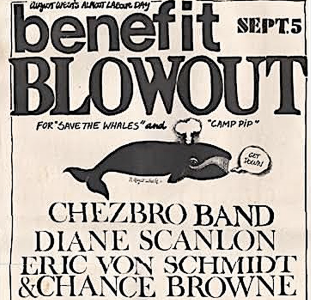This 1976 Benefit Blowout poster was posted on Facebook this mornhing by musician and old friend Eric Pearson. It was composed by the late Chris Browne (Hagar the Horrible). His older brother, fellow cartoonist and extraordinary musician Chance Browne, passed away a few weeks ago. Notice the “Black Wells Fiasco” logo at the bottom left.
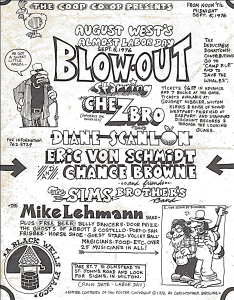
The below photo ran in the Wilton Bulletin in early August ’76. It accompanied a story about a then-upcoming Save The Whales concert, which then-girlfriend Sophie Black (on my left) and I co-produced, and which was held on a hilly 52-acre farm owned by Sophie’s parents, David and Linda Cabot Black. The focus of the story was that a portion of the proceeds would be donated to Camp PIP, a non-profit that offered recreational facilities help to lower-income kids.
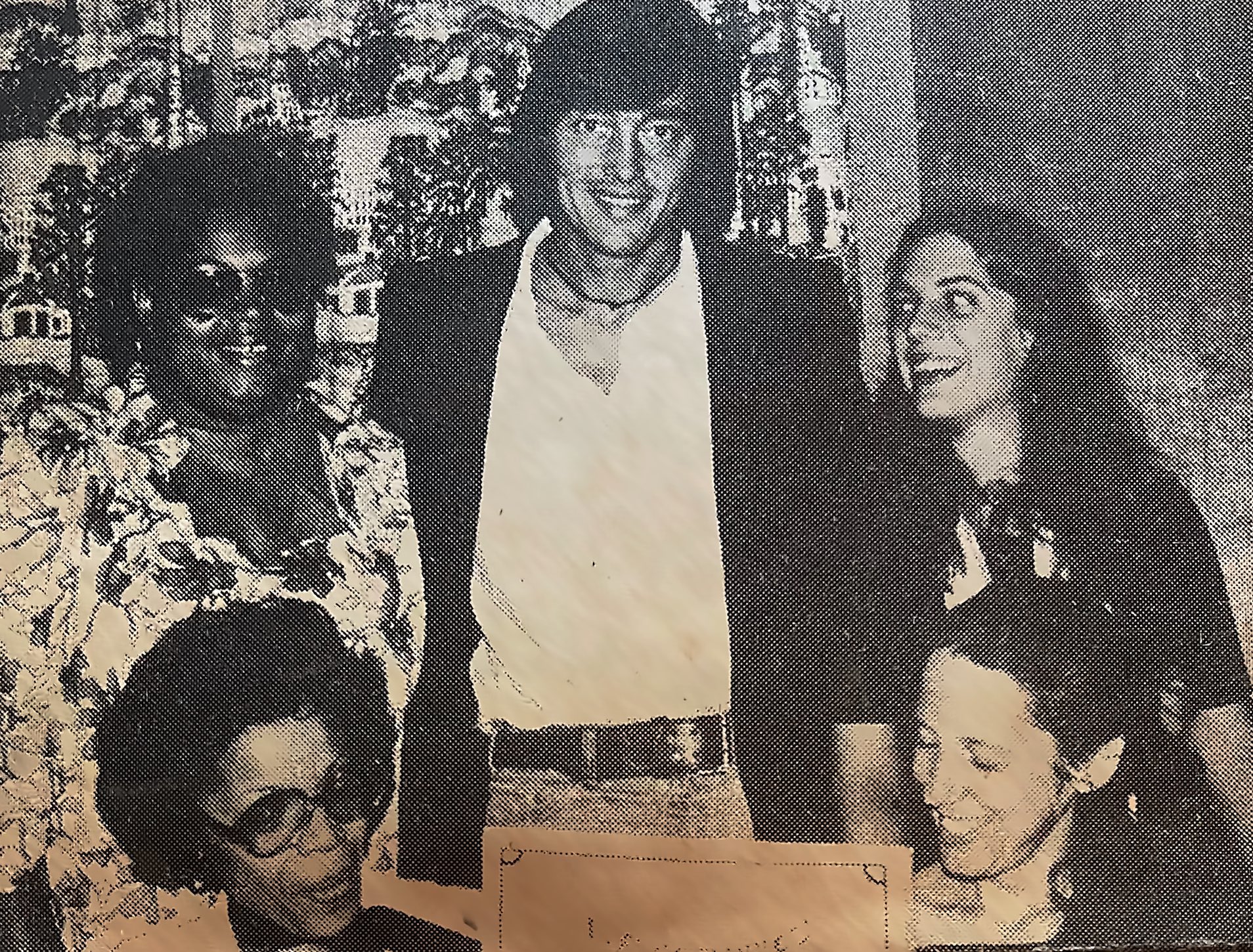
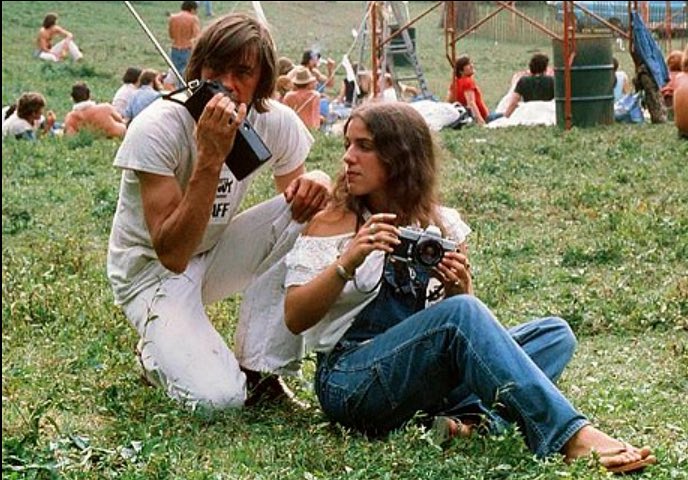
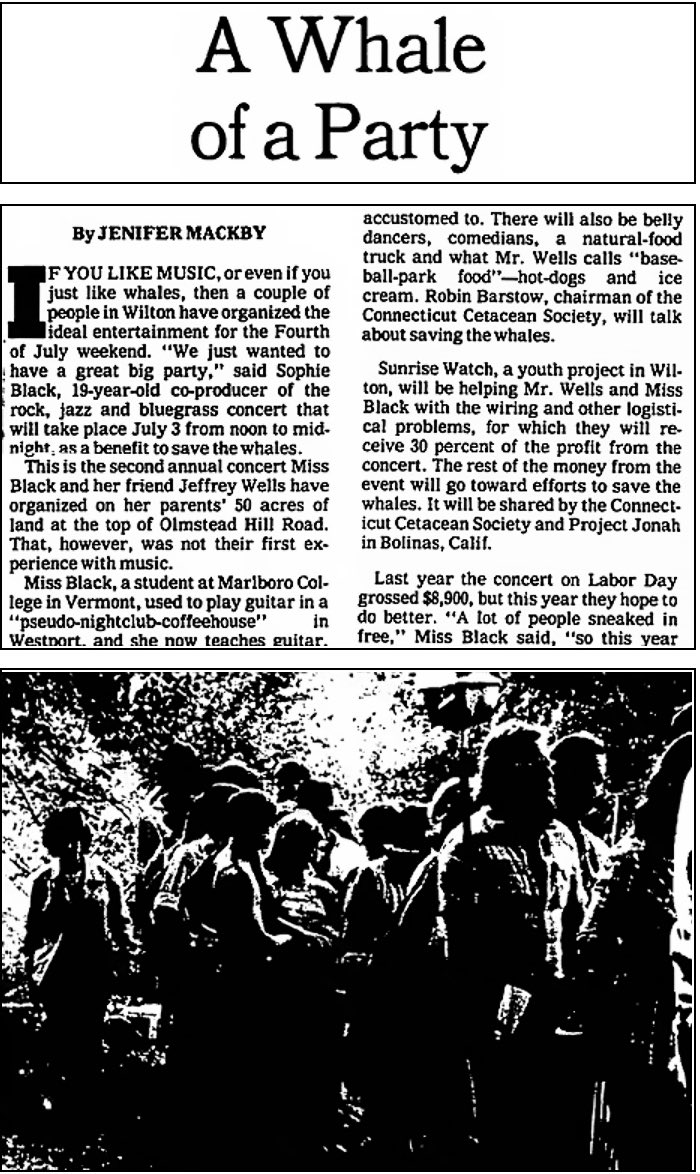
“First Time in Print,” posted on 4.8.14: My first movie-related reviews and articles began to be published in the spring of ’78, or just after I’d moved into my very first roach-infested Manhattan apartment. (143 Sullivan Street, just south of Houston.)
“But the very first time I got any ink for anything at all was in June of 1977, when N.Y. Times stringer Jennifer Mackby wrote a piece about a Save The Whales concert that I was co-producing with then-recent-girlfriend Sophie Black (currently a renowned poet).
“The Woodstock-like concert was held on a hilly 52-acre farm owned by Sophie’s parents (’60s and ’70s Broadway producer David Black and Opera New England and Opera Company of Boston co-founder Linda Cabot Black).
“I was working hard and living a robust life as far as it went, but the leafy vibe and social languor of Fairfield County almost acted as a kind of sedative (or so it seems to me now). A rude Manhattan awakening would follow within a year. I would eventually come to know the meaning of the line ‘to live in this town, you must be tough tough tough tough tough tough tuhhff.’ There would be loads of anxiety and very little peace until I finally edged my way into the NY film journalist fraternity in ’79, and even then life was brutal.”
